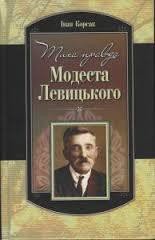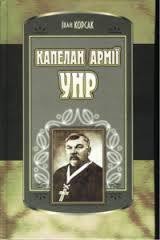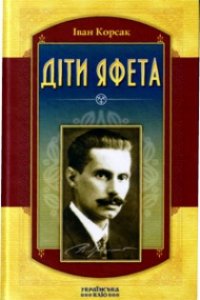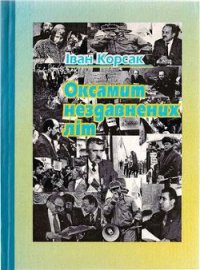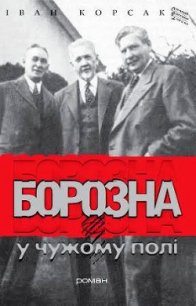Імена твої, Україно - Корсак Иван Феодосеевич "Korsak" (читать лучшие читаемые книги TXT) 📗
par l’affermissement de leur pouvoir. Les plus suspects etaient les mariages avec les
representants de l’aristocratie etrangere, et specialement polonaise, dans le contexte
d’affrontement ouvert entre l’Empire ottoman et la Pologne. Les chroniques evoquent
les soucis de la cour de Constantinople a l’occasion des mariages des filles du prince de
Moldavie,Vasile Lupu»
232232
[55] «Султани також були зацікавленні в укладанні шлюбів між своїми дітьми
та румунськими князями, тому що їм було відомо про небезпеку посилення їхньої
влади. Більш підозрілими були одруження із представниками іноземної аристократії,
а надто польської, в контексті відкритого зближення між Османською імперією та
Польшею. Хроніки розповідають про хвилювання константинопольського двору з
приводу одруження дочок молдавського князя Василя Лупула»
[56] Maria fut mariee a Janusz Radziwill, un des plus importants nobles polonais,
de confession reformee.Ruxandra devint contre sa volonte et d’une certaine facon meme
contre la volonte de son pere, l’epouse de Timushh Chmelnicki le fils du chef ukrainien
revolte contre la Pologne, mais qui etait redoute aussi par les Turcs Pense d’abord comme
un moyen de consolider la position de Vasile Lupu, refuse puis et accepte seulement
sous menace des armees ukrainiennes, ce marriage contribua probablement a fragiliser la
situation du prince moldave vis-a-vis de Turcs.
[56] «Марія одружилася з Янушем Радзивілом, представником дуже знаної
польської знаті, змінила віросповідання. Роксандра одружилася проти своєї волі, так
само як і проти волі батька, із Тимошем Хмельницьким, сином українського гетьмана,
який повставав проти Польщі і якому також чинили опір турки. Спочатку задумане
як спосіб зміцнити позицію Василя Лупула, потім відкинуте і прийняте лише під
загрозою українського війська, це одруження, можливо, сприяло послабленню
протистояння між князем Молдови і турками».
Посилання: Miron Costin, Opere, ed. P.P. Panaitescu, Bucuresti, 1958, p. 121.
Костін Мірон. Опер. – Бухарест: видавець П.П. Панаітеску, 1958. – С. 121.
[57] http://www.jewishgen.org/yizkor/pinkas_romania/rom1_00141.html
This is a translation from: Pinkas Hakehillot: Encyclopedia of Jewish Communities,
Romania, Volume 1, pages 141-176, published by Yad Vashem, Jerusalem, 1969
Це переклад з «Пінкас Хакехіллот», Енциклопедії єврейських общин, Румунія,
том 1, с. 141–176, виданий Ядом Вашем, Єрусалим, 1969.
(Pages 141–176)
English translation researched and edited by Robert S. Sherins, M.D.
Translated by Ziva Yavin, Ph.D. and Rabbi Jack H Bloom, Ph.D.
«In the 17th century, Iasi served as a stopover for immigrants to Eretz Yisrael from
central and eastern European countries. At the time of the draconian measures of Poland
in 1648–1649 [Cossack Uprising led by Hetman Bogdan Khmelnytsky (RSS)], some Jews
escaped from Poland to Iasi and settled there. In the Responsa literature of Polish scholars
from that time, it was recorded that the Jews of Iasi redeemed Jewish captives, who were
brought to slave markets by the Tatars. However, Iasi Jews also suffered at the same time
from persecution and pogroms; in 1650. The Cossacks burned Iasi and massacred Jews,
Turks, and Armenians. In 1652, when the Moldavian prince Vasile Lupu was forced to
marry off his daughter to Chmelnitzki’s son, Timush, Cossacks, who came to the wedding,
killed 60 Jews; and others were only able to save themselves by paying them enormous
233
sums of money. In 1653, Vasile Lupu was forced to give up his rule and his son-in-law,
Timush, came to his aid with an army of Cossacks. They tortured the Jews, jailed them in
towers, and tormented them to extract more money from them».
[57] (C. 141–176)
Англійський переклад вивчив та редагував Роберт С. Шерінс
Переклад професорів Зіви Явін та Раббі Джека Х Блума
«У VІІ столітті Ясси слугувало дорожньою зупинкою для емігрантів в Єрець
(Ізраїль) з центральних та східних європейських країн. В часи жорстоких заходів
Польщі в 1648–49 рр. (козацьке повстання під проводом гетьмана Богдана Хмельницького)
деякі євреї втекли з Польщі до Ясс та оселилися там. У відгуках польських
вчених того часу було записано, що євреї Ясс милували єврейських полонених, яких
вивозили на рабські ринки татари. Однак водночас євреї Ясс також потерпали від
переслідувань та погромів 1650 р. Козаки спалили Ясси та масово вбивали євреїв,
турків, вірменів. 1652 року, коли молдавський князь Василь Лупул був змушений
видати дочку заміж за сина Хмельницького Тимоша, козаки, які прибули на весілля,
вбили 60 євреїв; а інші змогли зберегти собі життя, лише заплативши великі суми
грошей. 1653 року Василя Лупула змусили припинити правління, і його зять Тиміш
прибув на допомогу із армією козаків. Вони знущалися з євреїв, саджали їх у вежі та
мучили, аби отримати більше грошей».
[58] http://209.85.129.104/search?q=cache:j_yS7ILNEDMJ:www.ukrweekly.com/
Archive/1997/299711.shtml+jew+in+ukraine+KHMELNYTSKY&hl=uk&ct=clnk&cd=
18&gl=ua&client=firefox-a
FACES AND PLACES by Myron B. Kuropas
Press attacks on Ukrainians continue in Chicago
«A few months ago, Chas i Podiyi, (Time and Events), a Chicago-based Ukrainian-
language newspaper, published an interview with Yoram Sheftel, Israeli defense attorney
for John Demjanjuk, and author of «Defending Ivan the Terrible».
Responding to the interview, a certain Rafael Levchin penned a commentary in
My America, a Chicago-based Russian-language newspaper, in which he wrote, among
other things, that Mr. Sheftel is a traitor to the Jewish people. «To say Mr. Sheftel sold
his soul would be to give him too much honor», wrote Mr. Levchin. «From that kind of
soul even Satan would turn away». Ukrainians are infinitely worse than Germans in their
treatment of Jews, Mr. Levchin continued. Germans only killed Jews during World War
II. Ukrainians have persecuted Jews since the days of Bohdan Khmelnytsky. Ukrainians
happily served the Nazi cause by organizing the SS Division Galicia, eight additional
German troop divisions, and by orchestrating Babyn Yar, Mr. Levchin concluded. For
all those reasons, all Ukrainians are guilty of anti-Semitism and John Demjanjuk is their
worthy representative.
Since I am the co-director of the Ukrainian American Justice Committee, the
organization that sponsored Mr. Sheftel’s appearance before Chicago’s Ukrainians, an
appearance which led to the original interview in Chas i Podiyi, the editor, himself a
Ukrainian American Jew, asked me to reply to Mr. Levchin.
234234
In my response, I suggested, among other things, that Mr. Sheftel was an Israeli patriot
who preserved the integrity of the Israeli justice system. Had the innocent John Demjanjuk
been hanged following a Soviet-style show trial, the entire free world would have
